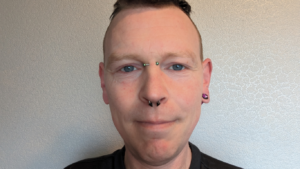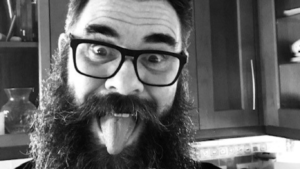Why is sleep so important for our wellbeing?
With increasingly busy lives it’s estimated that we now sleep around 90 minutes less each night than we did in the 1920s. I was startled to read this recently on the Mental Health Foundation’s website. Our ancestors were no slouches, often working long hours on the land, at sea and in heavy industry, to name a few. I think most of us are aware that a good night’s sleep possesses myriad benefits, such as reduced stress, improved memory and concentration, better mood and lower blood pressure. Furthermore, according to the NHS, ‘regular poor sleep puts you at risk of serious medical conditions, including obesity, heart disease and diabetes’. A healthy sleep routine also boosts immunity and allows your body to rest and repair itself.
Covid-19 has significantly affected our collective routine. The majority of folk I speak to have a very different routine now from the start of the year. Work, relationships, travel, hobbies, holidays, exercise and, yes, sleep are just some areas of life impacted upon. Some people entered lockdown already struggling with sleep. To others, this is a new and unwanted stressor. The links between poor sleep and mental illness have long been recognised. Worry can cause lack of sleep, which leads to fatigue, difficulty coping and low mood.
Covid-19 means that people are worrying about various aspects of life (physical health, jobs, loved ones, isolation etc.) and are therefore at risk of developing physical and mental health problems triggered by lack of sleep. That familiar foe, vicious circle, enters the stage.
Alas, sleeping problems did not begin with Covid-19. According to sleepscotland.org: ‘If we’re excited or anxious, then our bodies produce extra cortisol, a hormone which wakes us up and suppresses the production of melatonin, the hormone which encourages us to become sleepy…’ It is clear then that relaxation is essential. Avoiding caffeine, too much alcohol, nicotine (a stimulant) and late-night snacks (especially sugary ones) are some of the ways to achieve this.
Also, while regular exercise helps sleep, it should be avoided close to bedtime, as I learned in my youth. Playing football matches with a 9.30pm kick-off ensured I was wide awake late at night…and very tired in work the next day. Not good. We are perhaps heading into a grey area here, in the sense that an activity is good for you, if performed at the right time. For various reasons, exercise taken several hours before bed can be a healthy lifestyle choice. Another example is technology, which allows us to stay connected with loved ones, vital throughout the pandemic.
However, as mindyertime.scot (a web-site for children and young people in Scotland) says: ‘The blue light that comes from your device tells your body not to create as much melatonin. And that means you don’t fall asleep as quickly’. A familiar message, yes? There are also environmental factors at play here. According to sleepstation.org.uk: ‘Core body temperature follows a circadian rhythm, meaning that it rises and falls across a 24-hour cycle. It is widely accepted that a drop in core temperature is a signal for our bodies to prepare for sleep’. The same website also points out that this necessary decrease in core temperature can be achieved by a warm bath, shower or foot bath 1.5/2 hours before bed. Furthermore, the temperature of your bedroom might also be a factor. 16-18c is the suggested ideal. ‘This allows you to lose body heat through the night, which is essential for good sleep.’
As a #penumbra Peer Practitioner, I have the time to discuss these topics with people and to support them as they create plans around such issues.
No one is saying we shouldn’t exercise or use mobile phones. The debate is more nuanced than that. For example, I often support folk to plan and realise physical activity goals, usually in the morning or afternoon. The mental and physical benefits are clear. A morning gym session or afternoon walking group might also reap results at bedtime, when tiredness aids sleep. When I was unwell, I had friends who would let me help them with projects that left me worn out. It’s a simple sentence, but when I break it down there’s a lot going on there. First, it gave me a reason to get up early in the morning. Second, my day had a purpose, which kept me motivated. Third, I was staying connected to others, which improved my mood, self-esteem and social skills. Fourth, I was shattered and slept well. Exercise and staying connected to people are healthy tools to employ. We just need to ensure they don’t disrupt our relaxation before sleep.
I’m hearing some inspirational stories around gardening often from people who, prior to lockdown, didn’t have much time for this. In my personal life, I’ve been close to people who have used gardening to help them through tough times.
So, what should we be doing to relax and get a good night’s rest? We are all unique, but there are lots of suggestions: keeping regular sleeping hours, creating a restful environment, winding down with a warm (not hot) bath, a comfy bed, reading, radio, relaxing music, breathing exercises. Lots of people are now using various Apps, with success. Personally, I like to read or listen to some calm music. I save my upbeat tunes for earlier in the day. Foods rich in tryptophan (milk, eggs, spinach etc.) can also help us feel sleepy. Colin Espie, Professor of Sleep Medicine at the University of Oxford, says we should ‘commit to winding down and getting to bed’.
As racing thoughts and worry can be a hindrance to sleep, writing down your thoughts might help. theinsomniaclinic.co.uk says: ‘Every day, allocate a 20-minute window of time to write down everything you’re worried about…move on, do something you enjoy’.
Talking over your worries might also help. You might wish to do this with your support worker, a friend, a family member or a helpline. In our Hope & Recovery group, we offer people the chance to discuss their worries, so they are able to process what’s happening and take on board helpful reflections from their peers.
Finding a motivation to arise early in the morning might help. This could be a hobby, volunteering, housework or exercise. Maybe an early morning stroll would help you sleep? I’m hearing some inspirational stories around gardening, often from people who, prior to lockdown, didn’t have much time for this. As well as providing an incentive to begin the day a bit earlier, gardening possesses that wonderful combination of creativity and exercise. In my personal life, I’ve been close to people who have used gardening to help them through tough times. If you would like to share your own relaxation techniques, we’d love to hear them. These are challenging times and mutual support is essential. Take care, everyone.
Dave Alldred is a Recovery Practitioner (Peer) in our Western Isles NOVA service. Thanks for sharing your thoughts, Dave.





